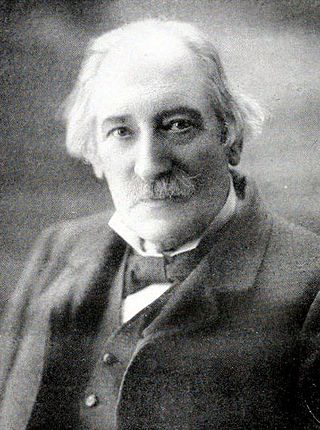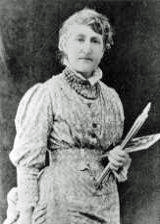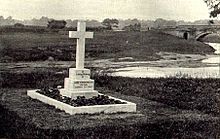
Henry Shakespear Stephens Salt was a British writer and campaigner for social reform in the fields of prisons, schools, economic institutions, and the treatment of animals. He was a noted ethical vegetarian, anti-vivisectionist, socialist, and pacifist, and was well known as a literary critic, biographer, classical scholar and naturalist. It was Salt who first introduced Mohandas Gandhi to the influential works of Henry David Thoreau, and influenced Gandhi's study of vegetarianism. Salt is considered, by some, to be the "father of animal rights", having been one of the first writers to argue explicitly in favour of animal rights, rather than just improvements to animal welfare, in his book Animals' Rights: Considered in Relation to Social Progress (1892).

Muriel Dowding, Baroness Dowding was an English humanitarian and animal rights activist known for championing anti-vivisection, vegetarianism and the improvement of animal welfare. Like her second husband Lord Dowding, 1st Baron Dowding she was a vegetarian, an anti-vivisectionist, spiritualist and theosophist. She coined the term cruelty-free and was a pioneer of the cruelty-free movement.

Edward Maitland was an English humanitarian writer and occultist.

Near the end of his life, Adolf Hitler (1889–1945) followed a vegetarian diet. It is not clear when or why he adopted it, since some accounts of his dietary habits prior to the Second World War indicate that he consumed meat as late as 1937. In 1938, Hitler's doctors put him on a meat-free diet, and his public image as a vegetarian was fostered; from 1942, he self-identified as a vegetarian.

Mabel Collins was a British anti-vivisectionist, occultist and author of over 46 books. She was an important figure in the Theosophical Society during the latter part of the nineteenth century but became critical of Helena Blavatsky and Theosophy after being expelled from the Society.
Edward Collis Berdoe was an English physician, anti-vivisectionist and writer. He studied and wrote on the works of Robert Browning. He also campaigned against medical experiments on human patients and animals.

Harriet Isabella (Isabel) Cooper-Oakley, was a prominent Theosophist and author.

The Brown Dog affair was a political controversy about vivisection that raged in Britain from 1903 until 1910. It involved the infiltration of University of London medical lectures by Swedish feminists, battles between medical students and the police, police protection for the statue of a dog, a libel trial at the Royal Courts of Justice, and the establishment of a Royal Commission to investigate the use of animals in experiments. The affair became a cause célèbre that divided the country.

Emilie Augusta Louise "Lizzy" Lind af Hageby was a Swedish-British feminist and animal rights advocate who became a prominent anti-vivisection activist in England in the early 20th century.

Maud Russell Lorraine Freshel was an American socialite, designer, and animal rights and vegetarianism activist. She also went by her initials, M. R. L., which she later spelled Emarel.
Women have played a central role in animal advocacy since the 19th century. The animal advocacy movement – embracing animal rights, animal welfare, and anti-vivisectionism – has been disproportionately initiated and led by women, particularly in the United Kingdom. Women are more likely to support animal rights than men. A 1996 study of adolescents by Linda Pifer suggested that factors that may partially explain this discrepancy include attitudes towards feminism and science, scientific literacy, and the presence of a greater emphasis on "nurturance or compassion" amongst women. Although vegetarianism does not necessarily imply animal advocacy, a 1992 market research study conducted by the Yankelovich research organization concluded that "of the 12.4 million people [in the US] who call themselves vegetarian, 68% are female, while only 32% are male".

Constance Georgina Louise Wachtmeister, known as Countess Wachtmeister, was a prominent theosophist, a close friend of Helena Blavatsky.

Howard Williams was an English humanitarianism and vegetarianism activist, historian, and writer. He was noted for authoring The Ethics of Diet, a history of vegetarianism, which was influential on the Victorian vegetarian movement.

Isabella Ormston Ford was an English social reformer, suffragist and writer. She became a public speaker and wrote pamphlets on issues related to socialism, feminism and workers' rights. After becoming concerned with the rights of female mill workers at an early age, Ford became involved with trade union organisation in the 1880s. A member of the National Administrative Council of the Independent Labour Party, she was the first woman to speak at a Labour Representation Committee conference.
Marie Françoise "Fanny" Bernard was a French anti-vivisection campaigner and creator of an anti-vivisection society. She was the wife of the pioneer in experimental research in physiology, Claude Bernard.

Isabelle de Steiger, née Lace, was an English painter, theosophist, occultist and writer. She became a member of several esoteric societies in London, and was a close friend and co-worker of Anna Kingsford.

Margaret Elizabeth Cousins was an Irish-Indian educationist, suffragist and Theosophist, who established All India Women's Conference (AIWC) in 1927. She was the wife of poet and literary critic James Cousins, with whom she moved to India in 1915. She is credited with preserving the tune of the Indian National Anthem Jana Gana Mana based on the notes provided by Tagore himself in February 1919, during Rabindranath Tagore's visit to the Madanapalle College. She was a member of the Flag Presentation Committee which presented the National Flag to the Constituent Assembly on 14 August 1947.

George Wyld (1821–1906) was a Scottish homeopathic physician and Christian Theosophist.

Ernest Bell was an English publisher, writer and activist. He was an advocate for animal rights and welfare, vegetarianism, and humanitarian causes.

Gertrude Baillie-Weaver was an English suffragette and writer who published as Gertrude Colmore. She co-founded the National Council for Animals' Welfare and wrote in support of animal welfare and human rights. Her books about Suffragette Sally and Emily Wilding Davison were republished in the 1980s.



















